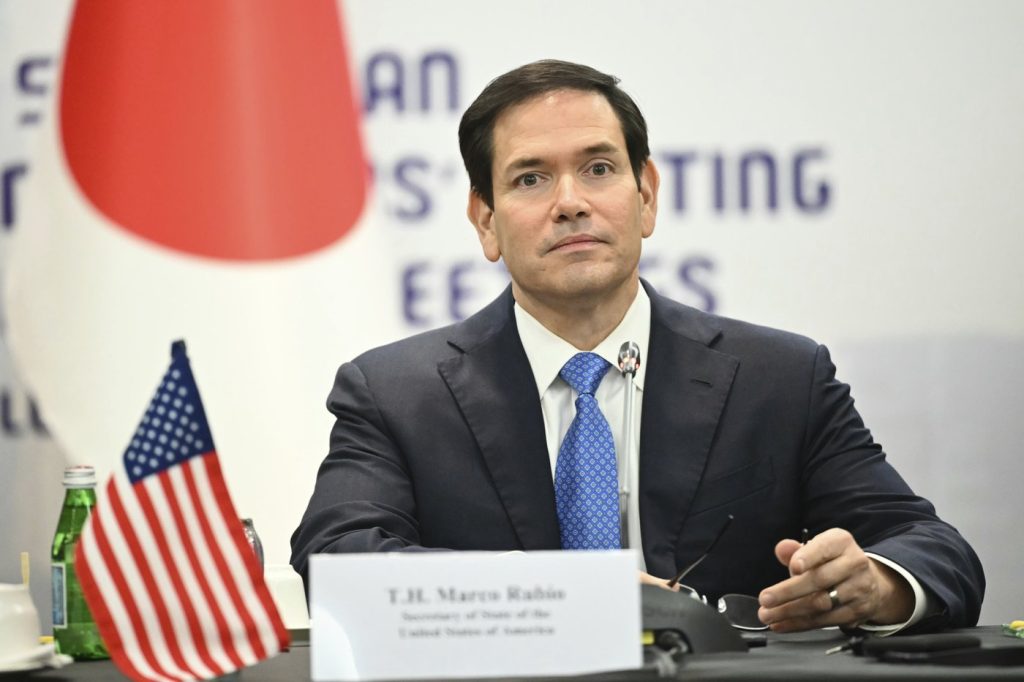KUALA LUMPUR, Malaysia (AP) – U.S. Secretary of State Marco Rubio concluded his second and final day at a Southeast Asian security conference by engaging in critical discussions with his Chinese counterpart, Foreign Minister Wang Yi. The meeting came as tensions between Washington and Beijing escalate over numerous issues, including trade policies, security dynamics, and China's support for Russia amid the ongoing war in Ukraine.
Rubio's participation in the Association of Southeast Asian Nations (ASEAN) forum marked his first official trip to Asia, culminating in his face-to-face talks with Wang. Just a day prior, Rubio met with Russian Foreign Minister Sergey Lavrov in Kuala Lumpur to explore potential pathways to revive peace talks concerning Ukraine. This string of high-profile meetings showcased the U.S.'s intent to engage actively with both allies and rivals in the region.
The backdrop of these discussions includes a rising global and regional unease pertaining to U.S. trade policies. Notably, President Donald Trump has warned of substantial tariffs that could affect countries across the board. As Rubio listened to grievances from Southeast Asian nations regarding these tariffs, he emphasized that the primary focus of his discussions revolved around security concerns and regional anxiety over Chinese influence, coupled with a desire for greater U.S. cooperation.
Despite the apprehensions about tariffs, Rubio downplayed their dominance in U.S.-Southeast Asian relations, stating that multiple collaborative issues existed beyond trade. Trump's administration, nevertheless, continues to view China as the foremost threat in areas such as technology and trade. The U.S. has alleged that China is contributing to Russia's military capabilities amidst the ongoing conflict with Ukraine, a sentiment voiced by Rubio during his discussions.
Rubio expressed concerns over China's support of Russia, remarking, "I think the Chinese clearly have been supportive of the Russian effort, and I think that generally they’ve been willing to help them as much as they can without getting caught." This assertion hinted at potential discussions with Wang regarding China's actions as they relate to Russia's military operations.
Throughout the ASEAN meeting, Rubio and Wang have engaged in a strategic form of competition, each promoting the advantages of their respective partnerships to Southeast Asian countries. Rubio highlighted U.S.-led initiatives, including a civil-nuclear cooperation agreement he signed with Malaysia, while Wang criticized the tariffs proposed by Trump, framing China as a stable alternative in the geopolitical landscape.
Through remarks made during bilateral meetings, Wang accused the U.S. of abusing tariffs and damaging the global trade framework, asserting that such moves jeopardized the stability of supply chains worldwide. In discussions with Southeast Asian leaders, Wang positioned China as a dependable ally, extending an offer of partnership amidst an increasingly complex global backdrop.
In a concurrent meeting with Lavrov, Wang issued a subtle warning directed at the U.S., expressing that Russia and China support ASEAN’s central role in regional cooperation, emphasizing their commitment to maintaining peace and stability in the Asia-Pacific. This signifies a concerted effort by both nations to present a united front in the face of perceived U.S. provocations aimed at fostering divisions in Southeast Asia.
The evolving dynamics at the ASEAN forum illustrate the intricate interplay of international relations in the region, with major powers like the U.S., China, and Russia constantly vying for influence amidst a backdrop of security concerns, trade tensions, and geopolitical maneuvering.











